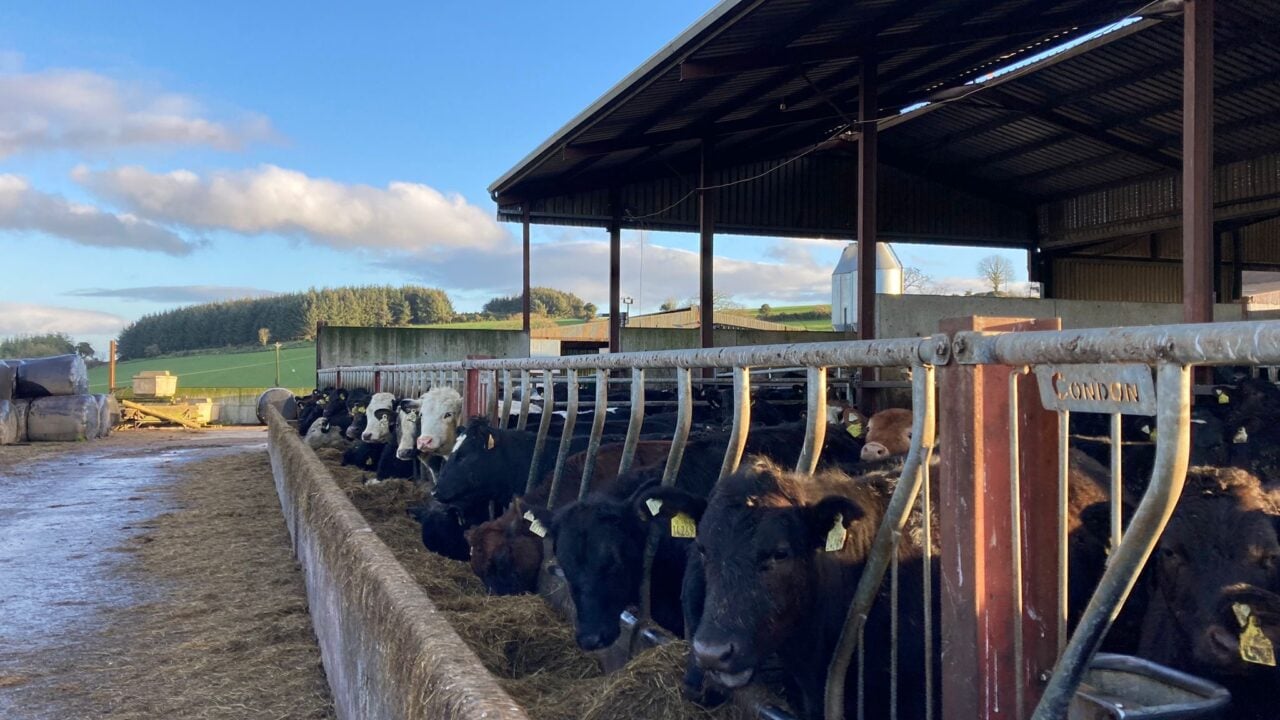Advantage Beef Programme
The ABP Demo Farm manager Sean Maher explained that slurry and farm yard manure (FYM) have been spread on land and sheds are being prepared for the incoming calves.
He said: "The first two sheds used for calf rearing are straw-storage sheds. These will be used to rear the first 200 calves.
"The next two sheds currently have livestock in them and we will be hoping for an early turnout to grass to get these sheds cleaned and ready for calves also."
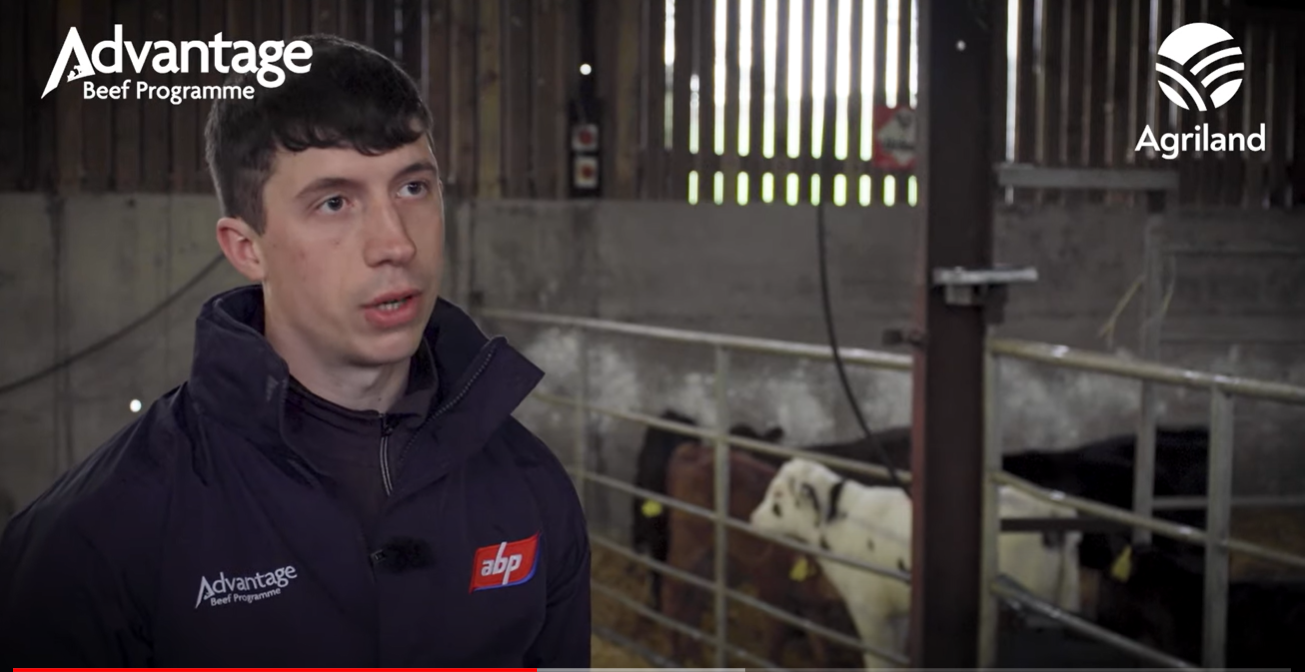
Commenting on silage supplies, the farm manager said: "Silage stocks are still quite good. Red clover silage will be the first to run out in mid-February.
"The yearlings are getting fed a diet of red clover silage, grass silage, concentrates and beet.
"We will be pulling the concentrates soon as we prepare for grass. The next step will be to look at spreading urea to get some paddocks growing.
"We will be targeting heavier covers on the silage ground at turnout to get them grazed as we plan to cut silage in mid-May."
The yearling cattle were weighed in mid-January and "have performed well since before Christmas" according to the farm manager.
Key statistics on the ABP Demo Farm yearling dairy-beef cattle performance:
- Average weight overall: 302kg;
- Average heifer weight: 290kg;
- Average steer weight: 312kg;
- Average daily live weight gain (ADG) December-January: 0.86kg/day;
Over 200 of the yearlings weigh over 300kg which is the same as the previous year's group.
The heaviest in the group is an Angus bullock sired by AA8766 weighing 405kg.
Maher said: "This calf has gained 1.05kg/day in the time it has been on the farm. The whole group has averaged 0.78kg/day since last February. All weanlings received their second lice treatment when they were being weighed."
There are three GreenFeed bins in operation on the farm gathering methane data as part of the Meat Technology Ireland (MTI) project the farm is involved in.
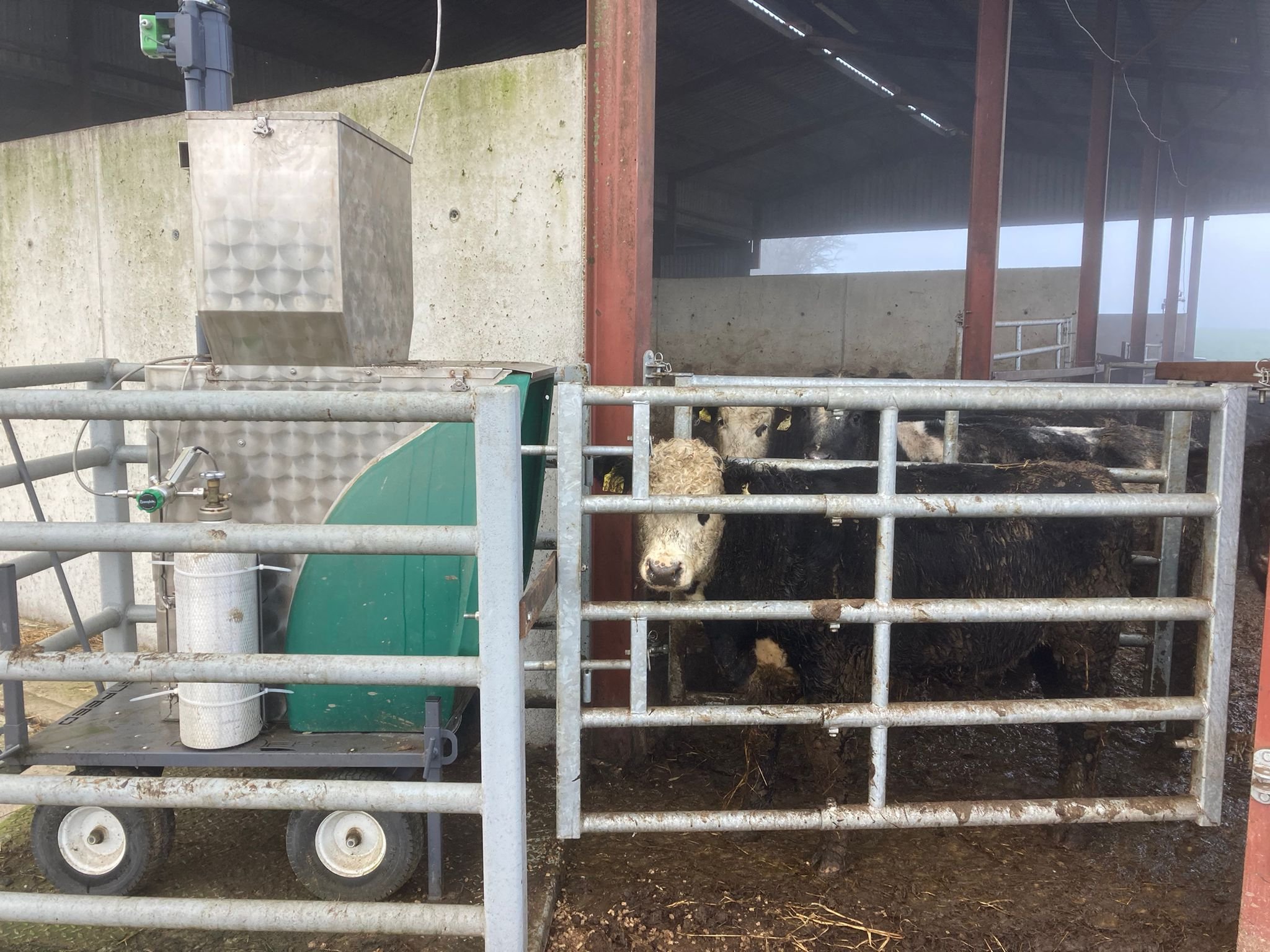
"Every animal will have had access to one over the course of the winter months and usage has been very good. We will possibly look at pulling off the best users for the early spring months to capture data at grass," Maher explained.
The farm manager said: "We had planned to draft lambs for slaughter last week but the storm put an end to that until this week.
"We drafted the first 30 lambs for slaughter this week. Lambs are drafted at 54kg and these had an average kill out weight of 23.5kg.
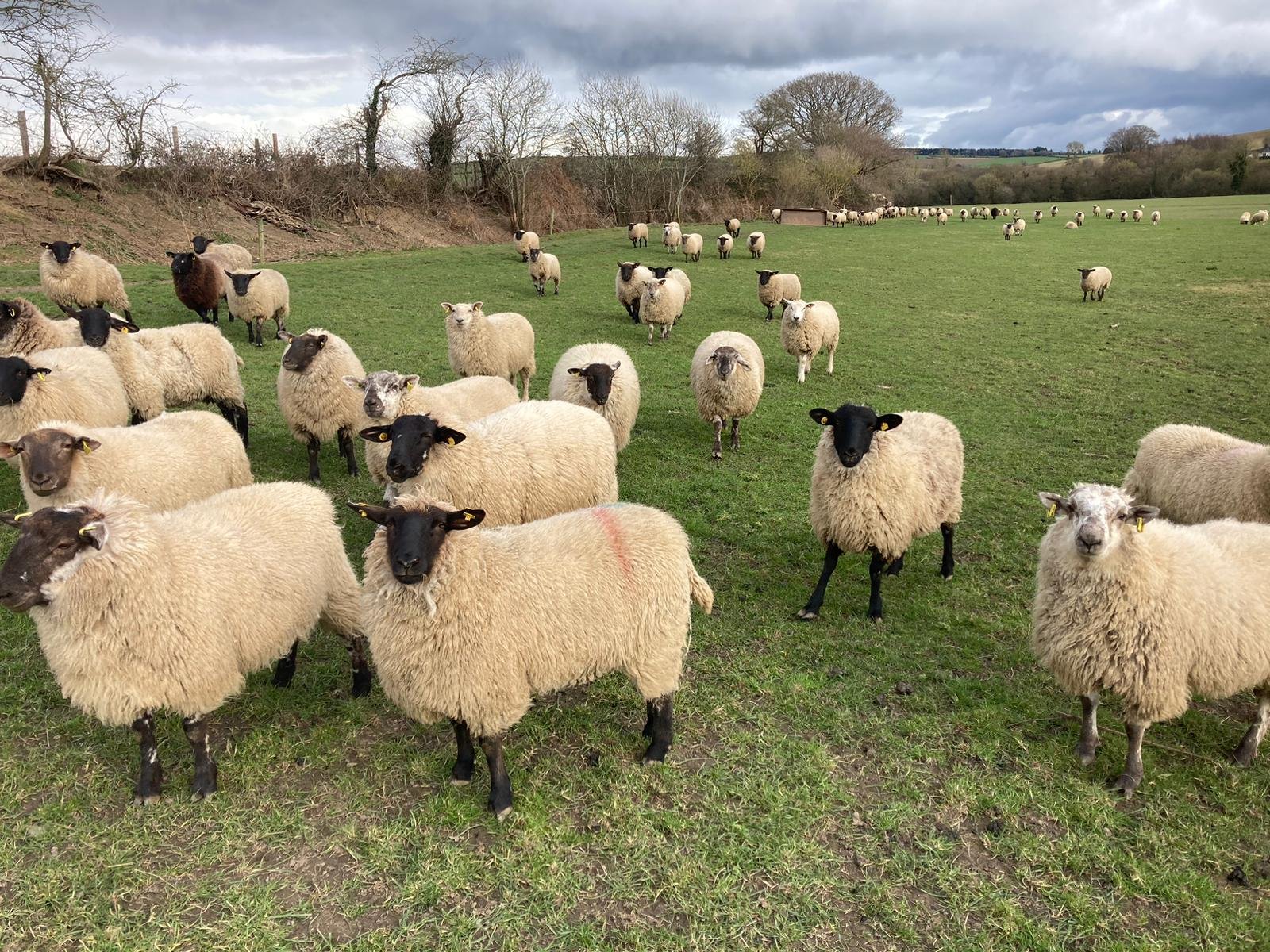
"The remaining lambs on the farm are being supplemented at grass with concentrates and some silage and we hope to draft lambs most weeks from now until all lambs are slaughtered."
Farmers planning on buying calves to rear this year should take time to note what went right and what went wrong last year before starting to rear calves again.
Maher said every year on the ABP Demo Farm before the new batch of calves arrive, time is taken to figure if any changes can be made that would benefit the calf rearing operation on the farm.
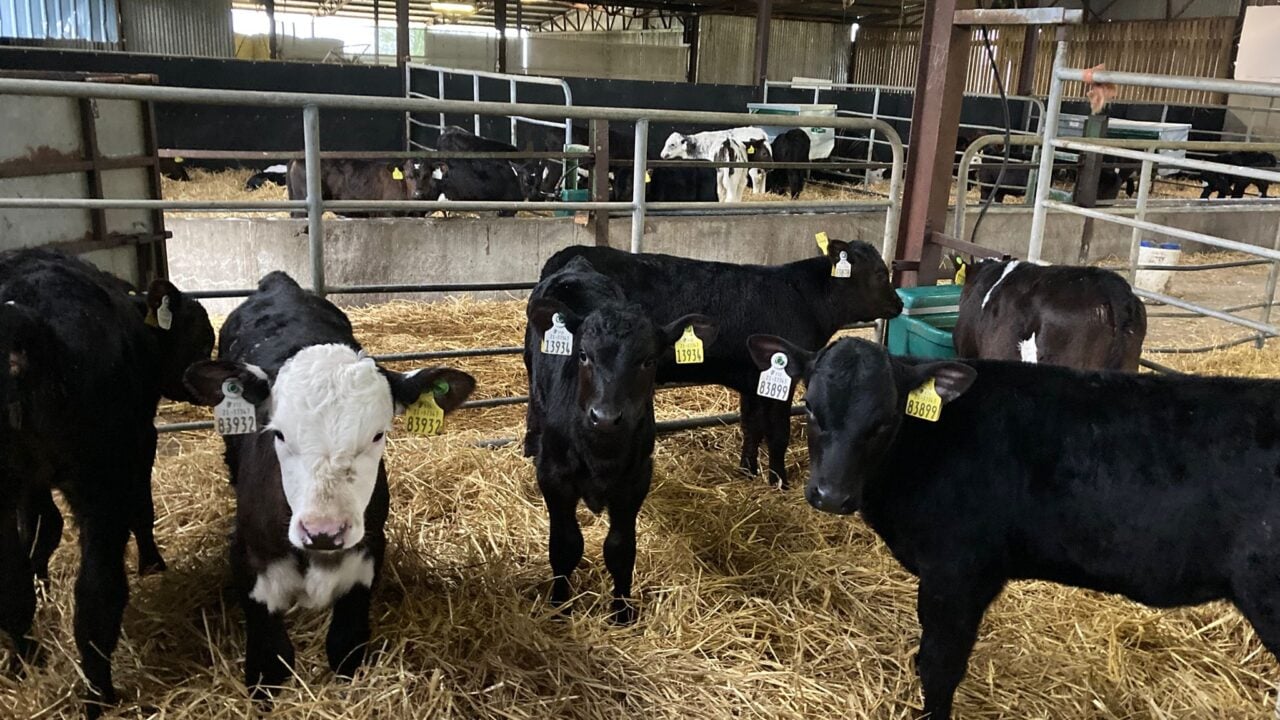
Offering some tips on preparing for the upcoming calf-rearing season, Maher said: "Good hygiene and cleanliness are a given when it comes to rearing calves.
"Wash and disinfect feeders and milk carts, remove and change teats and wash all calf jackets in plenty of time. Power washing and whitewashing of sheds is also highly recommended."
He advised farmers to sit down and review their vaccination plan with their vet. "Where calf sickness was an issue last year, farmers should identify if this sickness could have been prevented," he said.
If calves are being purchased from multiple dairy farms, farmers should check if there is a difference in the performance of the different groups of calves.
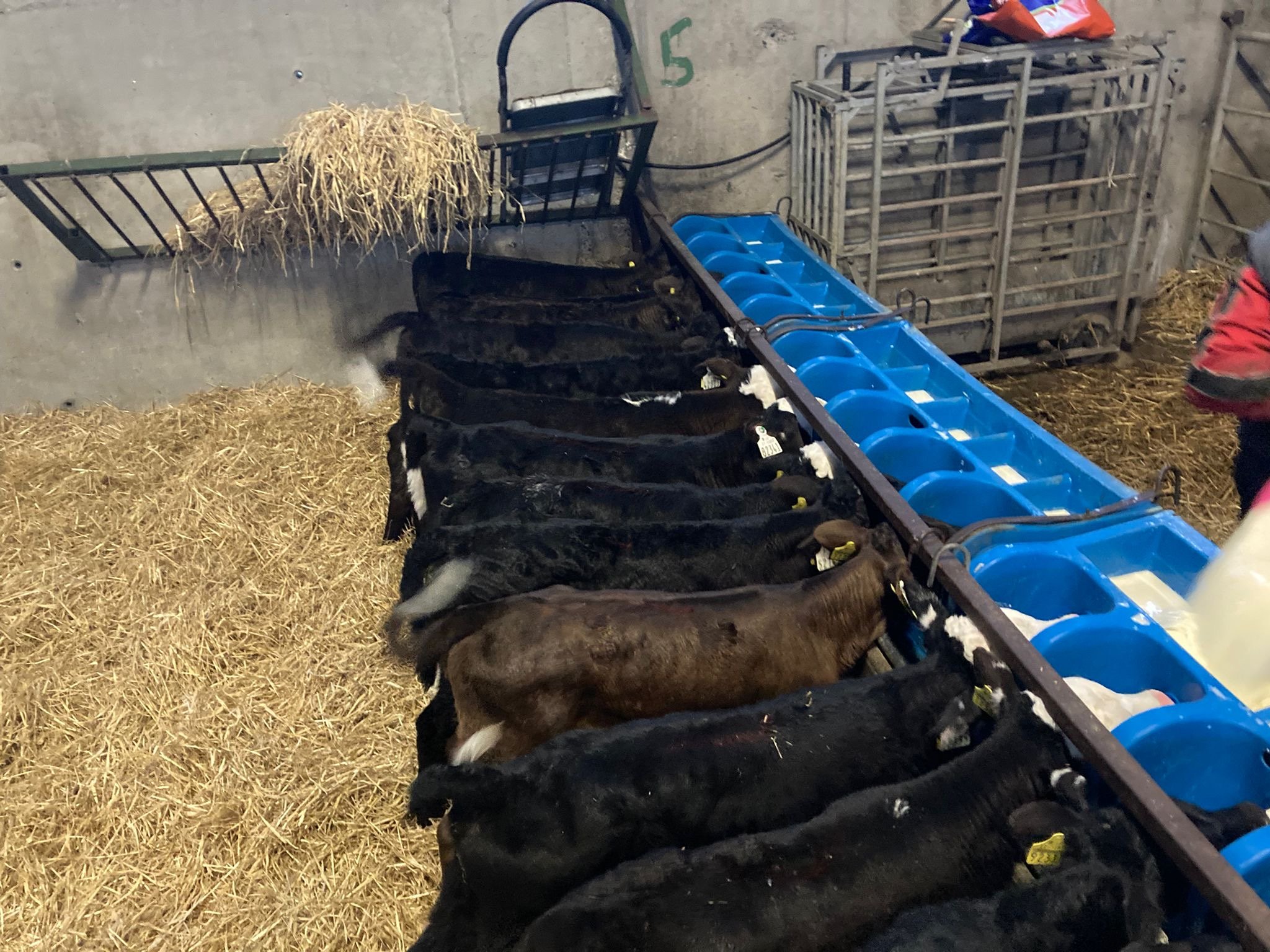
"From the 2024 calves bought on the Demo Farm, if we take the angus bull calves alone there was a difference of 0.1kg/day between the best and worst herds. This amounts to 3kg/month or over 20kg since these animals were turned out last summer," Maher said.
Where farmers are looking to source calves with a good genetic beef merit this spring, they can contact a member of the Advantage Beef Programme farm liaison team for assistance.
